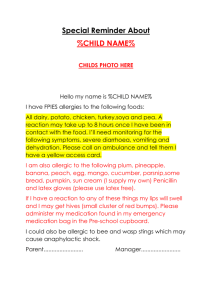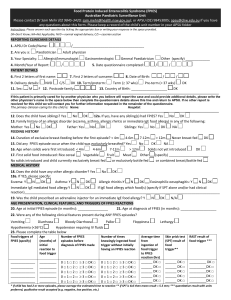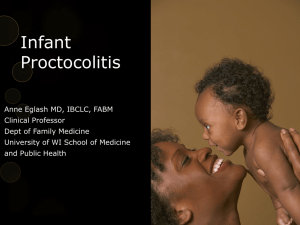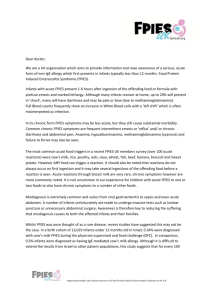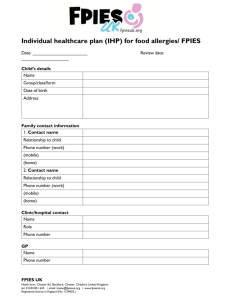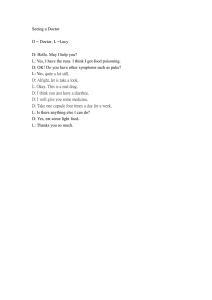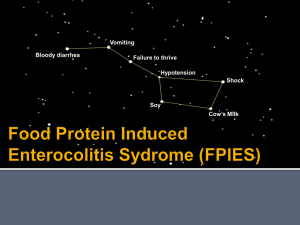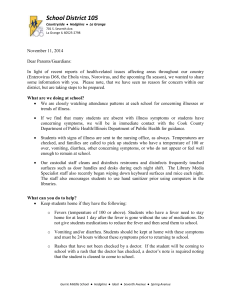Writing Your Own ER Letter
advertisement
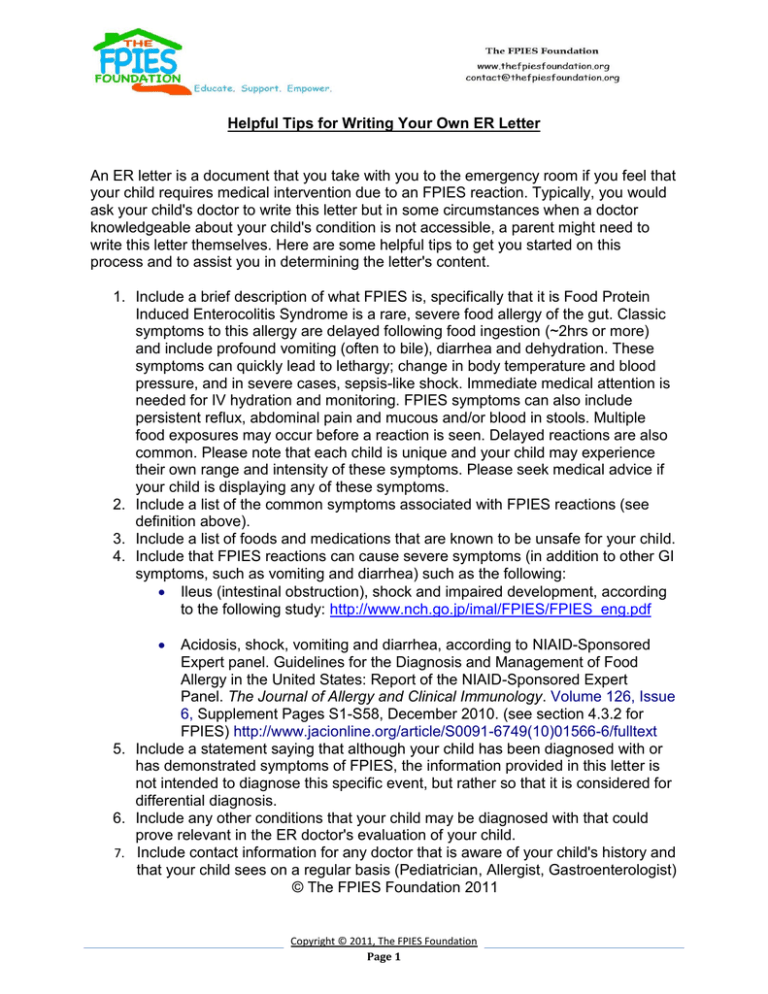
Helpful Tips for Writing Your Own ER Letter An ER letter is a document that you take with you to the emergency room if you feel that your child requires medical intervention due to an FPIES reaction. Typically, you would ask your child's doctor to write this letter but in some circumstances when a doctor knowledgeable about your child's condition is not accessible, a parent might need to write this letter themselves. Here are some helpful tips to get you started on this process and to assist you in determining the letter's content. 1. Include a brief description of what FPIES is, specifically that it is Food Protein Induced Enterocolitis Syndrome is a rare, severe food allergy of the gut. Classic symptoms to this allergy are delayed following food ingestion (~2hrs or more) and include profound vomiting (often to bile), diarrhea and dehydration. These symptoms can quickly lead to lethargy; change in body temperature and blood pressure, and in severe cases, sepsis-like shock. Immediate medical attention is needed for IV hydration and monitoring. FPIES symptoms can also include persistent reflux, abdominal pain and mucous and/or blood in stools. Multiple food exposures may occur before a reaction is seen. Delayed reactions are also common. Please note that each child is unique and your child may experience their own range and intensity of these symptoms. Please seek medical advice if your child is displaying any of these symptoms. 2. Include a list of the common symptoms associated with FPIES reactions (see definition above). 3. Include a list of foods and medications that are known to be unsafe for your child. 4. Include that FPIES reactions can cause severe symptoms (in addition to other GI symptoms, such as vomiting and diarrhea) such as the following: Ileus (intestinal obstruction), shock and impaired development, according to the following study: http://www.nch.go.jp/imal/FPIES/FPIES_eng.pdf Acidosis, shock, vomiting and diarrhea, according to NIAID-Sponsored Expert panel. Guidelines for the Diagnosis and Management of Food Allergy in the United States: Report of the NIAID-Sponsored Expert Panel. The Journal of Allergy and Clinical Immunology. Volume 126, Issue 6, Supplement Pages S1-S58, December 2010. (see section 4.3.2 for FPIES) http://www.jacionline.org/article/S0091-6749(10)01566-6/fulltext 5. Include a statement saying that although your child has been diagnosed with or has demonstrated symptoms of FPIES, the information provided in this letter is not intended to diagnose this specific event, but rather so that it is considered for differential diagnosis. 6. Include any other conditions that your child may be diagnosed with that could prove relevant in the ER doctor's evaluation of your child. 7. Include contact information for any doctor that is aware of your child's history and that your child sees on a regular basis (Pediatrician, Allergist, Gastroenterologist) © The FPIES Foundation 2011 Copyright © 2011, The FPIES Foundation Page 1
